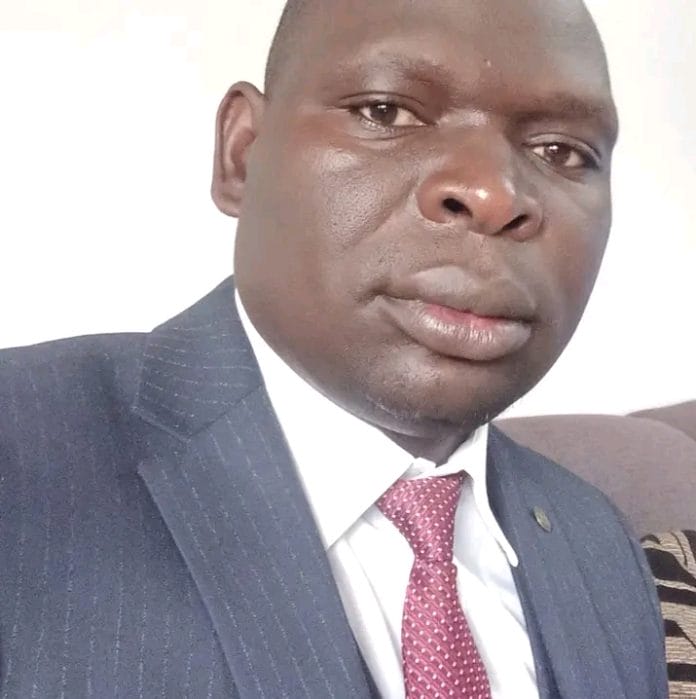The political landscape in Malawi has undergone a significant shift with Chithyola Banda, the former Minister of Finance under Lazarus Chakwera’s administration, stepping into the role of the Leader of Opposition.
This transition comes amid hopes and skepticism regarding his capability to transition from a minister whose tenure was marked by economic struggles to an opposition leader poised to hold the government accountable.
As the Democratic Progressive Party (DPP) assumes leadership, there is a notable optimism among Malawians, who are eager to witness a revitalization of the nation’s economy and the ushering in of a new era of stability and growth.
During Chithyola Banda’s tenure as the Minister of Finance, Malawi’s economy faced numerous challenges.
The local currency, the kwacha, experienced significant depreciation, resulting in a corresponding increase in the prices of goods and services.
This depreciation put a considerable burden on Malawian households, leading to widespread discontent. One of the most visible symptoms of the economic instability was the chronic fuel shortages, which saw long queues and resulted in severe disruptions across the economy.
This situation created a palpable sense of frustration among the populace and highlighted the need for more effective financial management and economic policies.
Despite these challenges, Chithyola Banda’s appointment as the Leader of Opposition signifies a critical moment of introspection and potential reinvention.
His previous experience in government provides him with unique insights into the financial and economic mechanisms at play, something that could, in theory, enhance his capacity to critique and propose alternative policies to those of the current administration. However, the weight of his past performance as Finance Minister will inevitably color public perception of his effectiveness in this new role.
Can Chithyola Banda genuinely pivot to become a voice of reason and accountability, or will he follow in the footsteps of predecessors like George Malemiya, offering little more than critique without concrete solutions?
The DPP-led government, under new leadership, has promised to tackle the economic troubles that have beleaguered Malawi, particularly focusing on resolving the fuel shortages and stabilizing the currency.
This promise resonates deeply with citizens weary of persistent economic woes and anxious for signs of recovery. The DPP has positioned itself as a beacon of hope, presenting a vision of economic stability and growth.
By addressing fundamental issues such as fuel supply, import-export balance, and prudent financial management, the DPP aims to restore confidence in Malawi’s economic future.
Chithyola Banda’s effectiveness in his new role will largely depend on his ability to adapt and apply lessons learned from his tenure in Chakwera’s government.
He must demonstrate a nuanced understanding of economic policy and craft robust critiques that push the government towards transparency and accountability.
Moreover, presenting viable alternatives to the current policies will be crucial if he is to be taken seriously as a leader of the opposition. Simply opposing for the sake of opposition will not suffice.
Malawians expect, and deserve, a constructive dialogue that elevates national discourse and results in tangible improvements for their daily lives.
At the same time, the stakes are high for the DPP. As they embark on their mission to rectify the issues inherited from the previous administration, they must prioritize effective communication with the public. Transparency in policy-making and a genuine commitment to economic reforms will be essential in winning public trust.
By addressing the root causes of the nation’s economic challenges and taking visible strides towards improvement, the DPP can set a precedent for responsible governance.
Amid these dynamics, the role of Chithyola Banda becomes even more pivotal. He stands at a crossroads where he can choose to contribute positively to the political narrative in Malawi.
If he embraces this opportunity with a focus on constructive criticism and visionary alternatives, he could redefine his political legacy. Conversely, falling into patterns of unproductive opposition could sideline his potential contributions and reinforce public skepticism.
In essence, Chithyola Banda’s transition from finance minister to opposition leader offers a compelling narrative about resilience and opportunity. It challenges him to rise above past criticisms and showcase the depth of his leadership capacity.
For the DPP, this period offers a chance to stand out as a government that learns from past errors, prioritizes national welfare, and works diligently to bring economic prosperity back to Malawi.
The coming months will be critical in determining whether these leaders can step up to the plate. The journey may be fraught with challenges, but it also brims with potential for significant positive change.
In charting a new course for Malawi, the combined efforts of a diligent government and a conscientious opposition could truly transform the political and economic narrative, providing hope to a nation yearning for a brighter future.
Ultimately, the test for both Chithyola Banda and the DPP will be their willingness to engage in meaningful dialogue, embrace reformative policies, and harness the power of leadership to steer Malawi towards a path of recovery and growth.
The nation is watching, the stakes are high, and the time for action is now.
Discover more from The Maravi Post
Subscribe to get the latest posts sent to your email.



